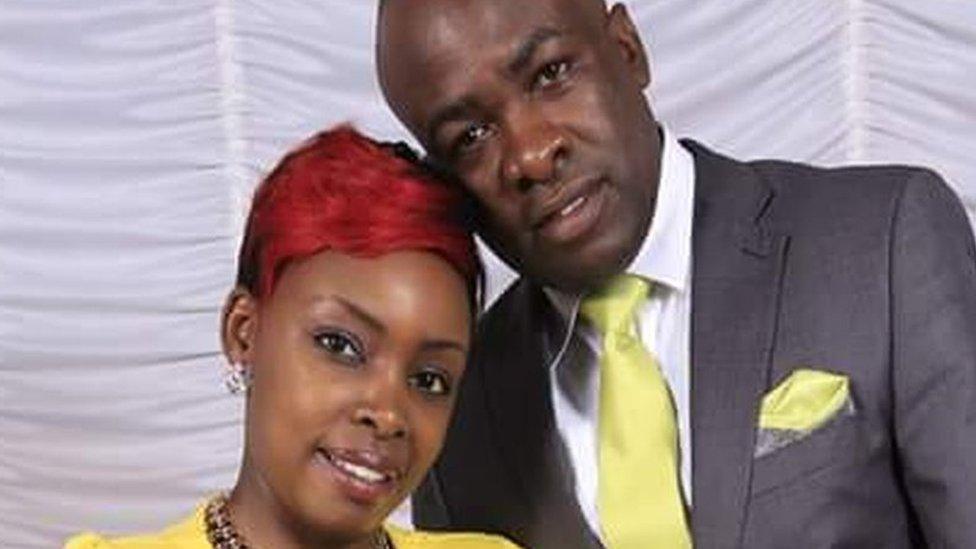Kenya election: 'Dangerous limbo' ahead of official result
- Published
Kenya's day of tension after polls
It's a dangerous time in Kenya.
From the preliminary presidential election results posted online, it appears that President Uhuru Kenyatta has won a convincing victory.
But opposition leader Raila Odinga has cried foul, and presented documents he says are evidence the election was "a fraud".
While the Independent Electoral and Boundaries Commission (IEBC) rushes to verify the results, supporters on both sides are stuck in an odd limbo.
The streets of Nairobi are quiet, but the alleyways of Mathare slum clatter with the sound of police and protesters exchanging tear gas and stones.
The biggest slums are mostly opposition strongholds where protests often turn violent, and are usually dealt with harshly by police.
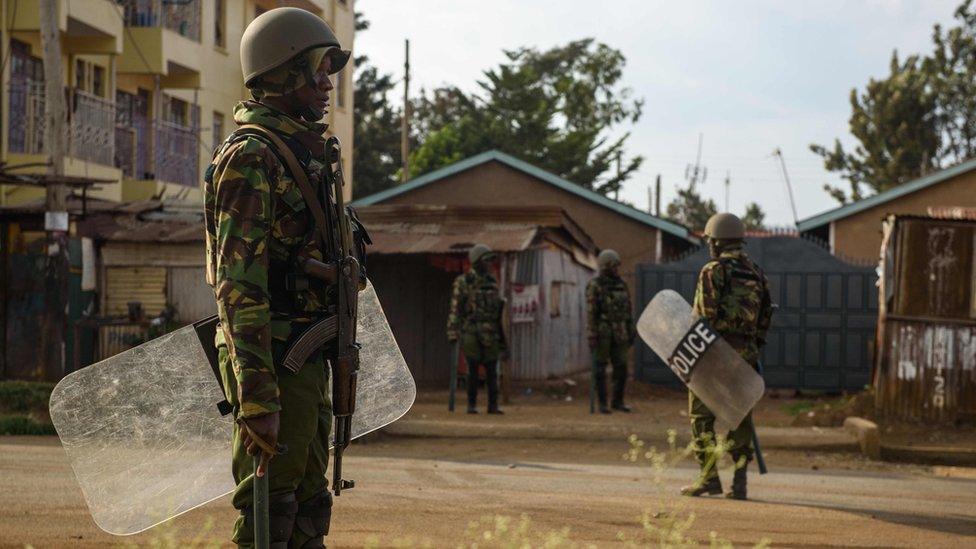
Riot policemen have been out in the streets of Kisumu, an opposition stronghold
But Kenya doesn't need to turn to violence.
If allegations of cheating are properly investigated, and if the election results are openly and accurately verified, many people could be satisfied.
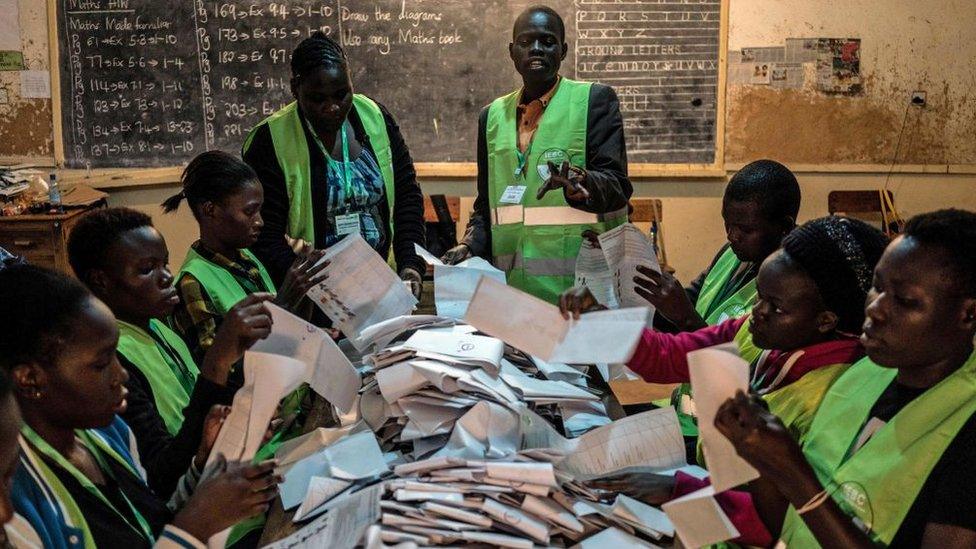
Raw polling data shows incumbent President Kenyatta leading comfortably - but Mr Odinga has called these results "fake"
If the opposition contests the results, which it has always seemed determined to do, it can do so through the court - or it can go to the streets.
'Huge conspiracy'
If the provisional results stand, Mr Kenyatta's winning margin of nearly 1.5 million votes should be large enough to be convincing.
This is an imperfect system - the voters' register was neither accurate nor complete, and some irregularities have been found - but not enough to account for 1.5 million votes.
The opposition is relying on a huge conspiracy to explain its margin of defeat.
So just how viable are the claims that the IEBC computer system was hacked? What's the evidence? How can it be proven or disproven?
In an early morning press conference at a Nairobi nightclub, Mr Odinga, flanked by his National Super Alliance (Nasa) partners, made weighty allegations.
"Hackers gained entry into our election database through the identity of Chris Msando who was executed barely a week ago," Mr Odinga read hesitatingly from a prepared statement.
Chris Msando was the acting head of technology at the IEBC and had appeared on TV reassuring the public his system was secure.
He was tortured and strangled. There's been no police update as yet on their investigation.
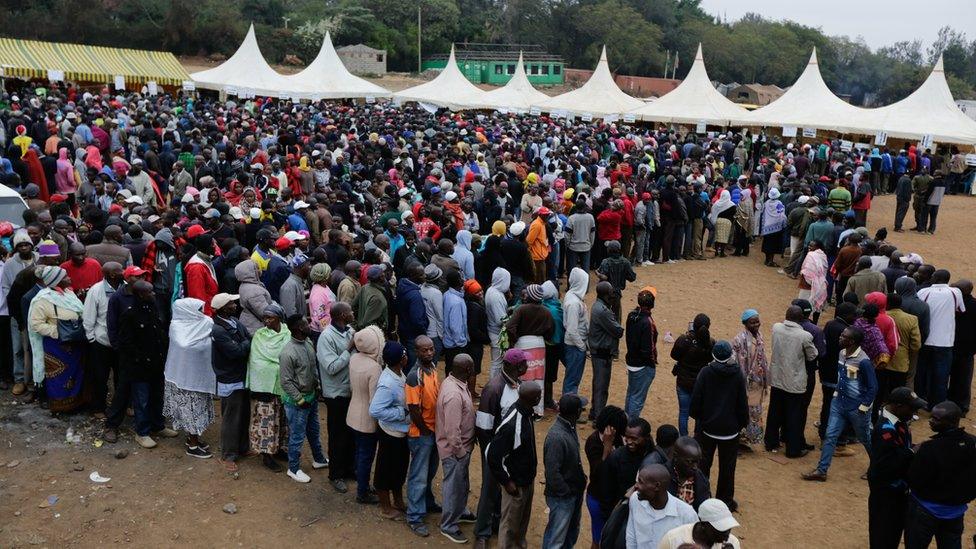
Polling day passed largely peacefully, with people queueing early to ensure they could vote
Mr Odinga went on to say an algorithm had been introduced to distort the results and that changes were made to "easily manipulate the database".
More than 50 pages of computer logs were printed out and provided to journalists as evidence of the plot.
How plausible are the allegations?
Technical experts have different views on its veracity. Some say it's nonsense, others that it could be plausible.
Mr Odinga refused to reveal his source for the computer data, which is perhaps not surprising.
It may or may not be true - after the electoral commission's head of IT was killed, anything could be possible - but there is a way to double-check.
The preliminary results texted straight from the polling stations and posted directly online can be cross-referenced against documents known as 34A and 34B.
These are the pieces of paper stamped and signed by the agents at the polling station and constituency-level respectively.
If the numbers match, the election can be declared largely free and fair.

Kenya's election in numbers:
Kenya elections 2017: "Six-piece" vote explained
Six separate ballot papers: For president, national assembly, female representatives, governors, senate and county assemblies
47 parliamentary seats and 16 senate seats reserved for women
Eight presidential candidates: President Uhuru Kenyatta and opposition leader Raila Odinga are favourites
Kenyatta beat Odinga in 2013 - their fathers were also political rivals in the 1960s
A candidate needs 50% plus one vote for first-round victory
More than 14,000 candidates running across the six elections
More than 45% of registered voters under 35
Some 180,000 security officers on duty nationwide in case of trouble

So the IEBC is now checking and uploading around 45,000 documents for everyone to see.
It's not easy negotiating the IEBC system to cross-check, but some early work by the Kenyan Human Rights Commission found a number of inconsistencies - just a few votes here and there, which could all add up - but probably not to 1.5 million.
Those with an intricate knowledge of Kenyan constituency voting patterns believe NASA did not win over enough potential swing-voters for victory.
The international observers will report in back-to-back press conferences on Thursday, a final result is still some time away, and this odd limbo rumbles on.
Only when the matatus are back on the streets of Nairobi in their usual chaotic numbers, and people start heading back to work, will the tension be lifted.
Until then Kenya waits: To see what happens in places like Mathare, and how the security forces react, to see what the opposition urges its supporters to do, and to hope that violence can be avoided.
- Published27 November 2017
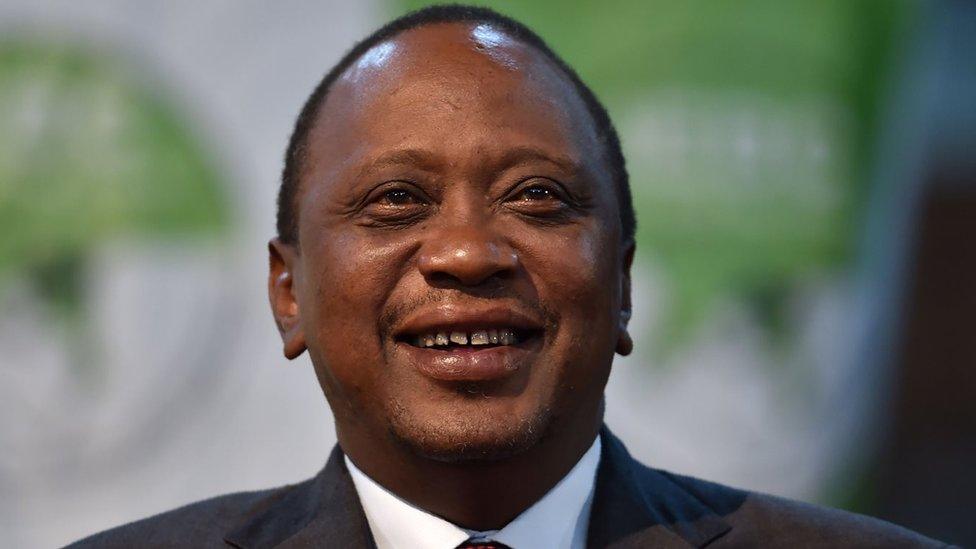
- Published22 August 2022
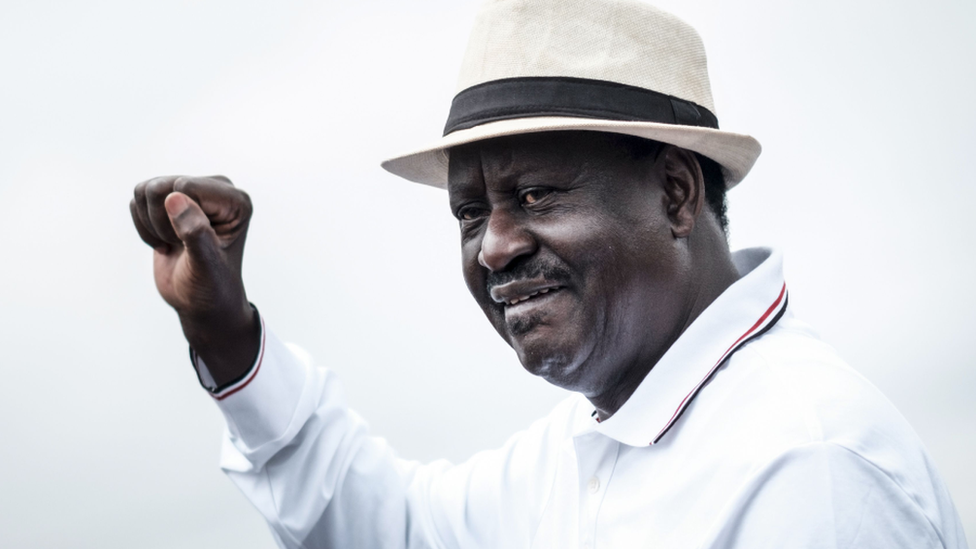
- Published8 August 2017
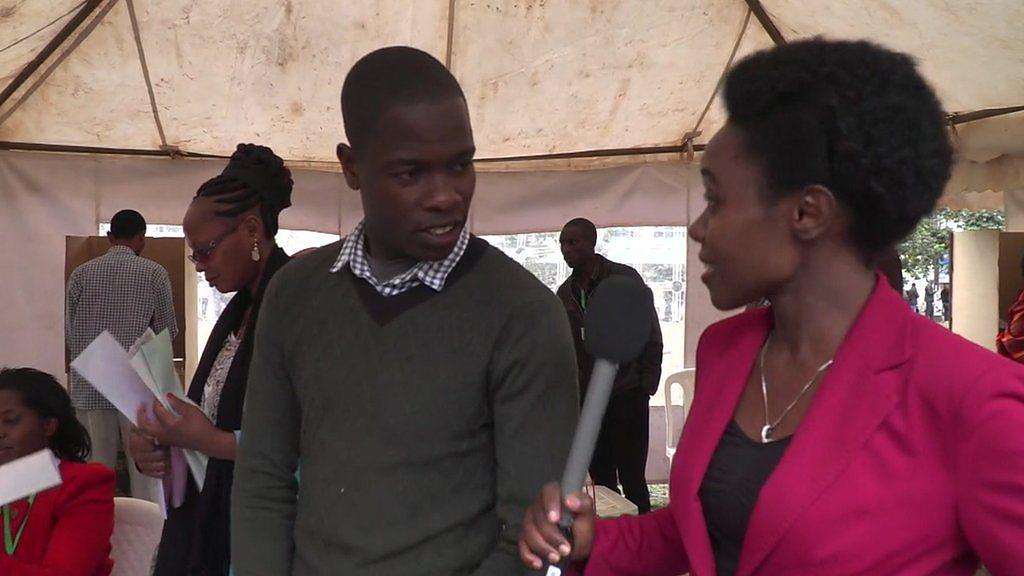
- Published4 August 2017
